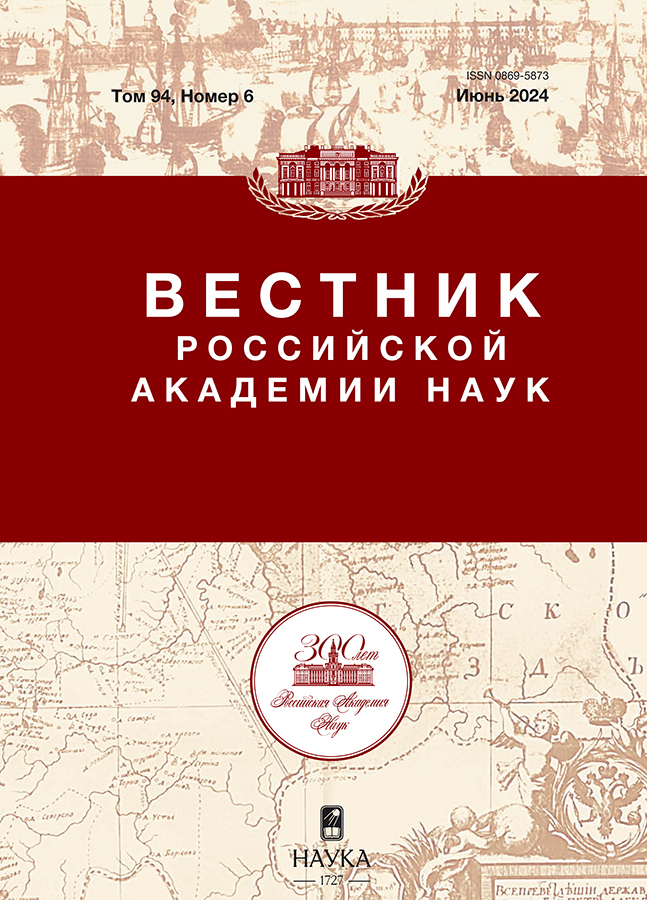Access to clean water in Africa
- Authors: Barinov A.K.1, Sugakov G.K.1
-
Affiliations:
- Institute for African Studies of the Russian Academy of Sience
- Issue: Vol 94, No 6 (2024)
- Pages: 550-559
- Section: RUSSIA–AFRICA: SECURITY, TECHNOLOGICAL SOVEREIGNTY AND HUMANITARIAN VALUES
- URL: https://journals.eco-vector.com/0869-5873/article/view/659783
- DOI: https://doi.org/10.31857/S0869587324060055
- EDN: https://elibrary.ru/FNXGLD
- ID: 659783
Cite item
Abstract
Africa’s rapid socio-economic development makes the problem of access to clean water in the region extremely urgent. The need to improve the relevant infrastructure is recognised not only at the level of national governments, but is also becoming an important task for international development institutions, including African ones. In particular, the African Development Bank Group has created the “Water Strategy 2021–2025”.
The article collects, systematises and analyses quantitative indicators that reflect the access of people and economic sectors to clean water, as well as the financing of this area and its place in global (Sustainable Development Goals 2015–2030, Millennium Development Goals 2000-2015) and African (“Agenda 2063”) strategies. The authors of the article conclude that modern African approaches to expanding access to clean water and new infrastructure projects imply efficient and systematic use of water resources not only within the national borders of the countries, but also at sub-regional and macro-regional scales. In terms of Russian-African partnership, in addition to investments in infrastructure, technology transfer can play a special role. The priority African markets for the introduction of Russian technologies in the field of water treatment and purification include the countries where the water problem is the most acute and oriented towards cooperation with Russia, in particular, Burkina Faso, Niger, Egypt, Sudan, Algeria, and Zimbabwe.
Full Text
About the authors
A. K. Barinov
Institute for African Studies of the Russian Academy of Sience
Author for correspondence.
Email: a.barinov@inafr.ru
кандидат экономических наук, научный сотрудник центра глобальных и стратегических исследований
Russian Federation, MoscowG. K. Sugakov
Institute for African Studies of the Russian Academy of Sience
Email: g.sugakov@inafr.ru
младший научный сотрудник центра глобальных и стратегических исследований
Russian Federation, MoscowReferences
- Andreeva T.A., Barinov A.K., Voronina N.A., Zelenova D.A. Second Russia-Africa Summit, Economic and Humanitarian Forum: New Global Architecture // Asia and Africa Today. 2023. № 9. P. 5–18.
- Russia-Africa Partnership Forum Action Plan 2023–2026. http://kremlin.ru/supplement/5971
- Abramova I.O., Fituni L.L. Price of ‘blue gold’ // Asia and Africa today. 2008. № 12. P. 7–12.
- Grishina N.V. Ecological aspects of the state of African coastal territories // Journal of the Institute for African studies. 2022. № 3. P. 110–118.
- Dmitrevsky Y.D. Africa: Essays on Economic Geography. Moscow: Mysl, 1975.
- Dmitrevsky Y.D. Inland waters of Africa and their utilisation. L.: Gidrometeoizdat, 1967.
- WHO/UNICEF Joint Monitoring Programme. https://washdata.org/data
- Renewable internal freshwater resources per capita (cubic meters). https://data.worldbank.org/indicator/ER.H2O.INTR.PC?name_desc=false
- Level of water stress: freshwater withdrawal as a proportion of available freshwater resources.https://data.worldbank.org/indicator/ER.H2O.FWST.ZS?name_desc=false
- Matsenko I.B. Africa: realisation of the ‘Millennium Development Goals’ // Asia and Africa today. 2012. № 8. P. 21–26.
- Цели развития тысячелетия: доклад за 2015 год. https://www.un.org/ru/millenniumgoals/mdgreport2015.pdfMillennium Development Goals: 2015 report. https://www.un.org/ru/millenniumgoals/mdgreport2015.pdf
- Making water and sanitation management accessible and sustainable for all. https://sdgs.un.org/ru/goals/goal6
- The United Nations World Water Development Report 2024: water for prosperity and peace // UNESCO, 2024. https://unesdoc.unesco.org/ark:/48223/pf0000388948
- Agenda 2063: The Africa we want (Popular version) // African Union, 2015. https://au.int/sites/default/files/documents/36204-doc-agenda2063_popular_version_en.pdf
- Water Strategy 2021–2025. Towards a Water Secure Africa // The African Development Bank Group. 2022. https://www.afdb.org/en/documents/water-strategy-2021-2025-towards-water-secure-africa
- Water Supply & Sanitation. Data Portal. The African Development Bank Group. https://projectsportal.afdb.org/dataportal/VSectorProject/show/E
- Infrastructure Financing Trends in Africa 2019–2020 // The Infrastructure Consortium for Africa, African Development Bank. Abidjan, Côte d’Ivoire, 2022.
- Infrastructure Financing Trends in Africa 2018 // The Infrastructure Consortium for Africa. Abidjan, Côte d’Ivoire, 2018.
- Abramova I.O., Fituni L.L. The Second Russia-Africa Summit: from the legacy of colonialism to sovereignty and development // World Economy and International Relations. 2023. № 12. P. 35–48. https://doi.org/10.20542/0131-2227-2023-67-12-35-48
- Abramova I.O. Dignity is the key word at the Second Russia-Africa Summit // The International Affairs. 2023. № 8. P. 12–17.
Supplementary files













